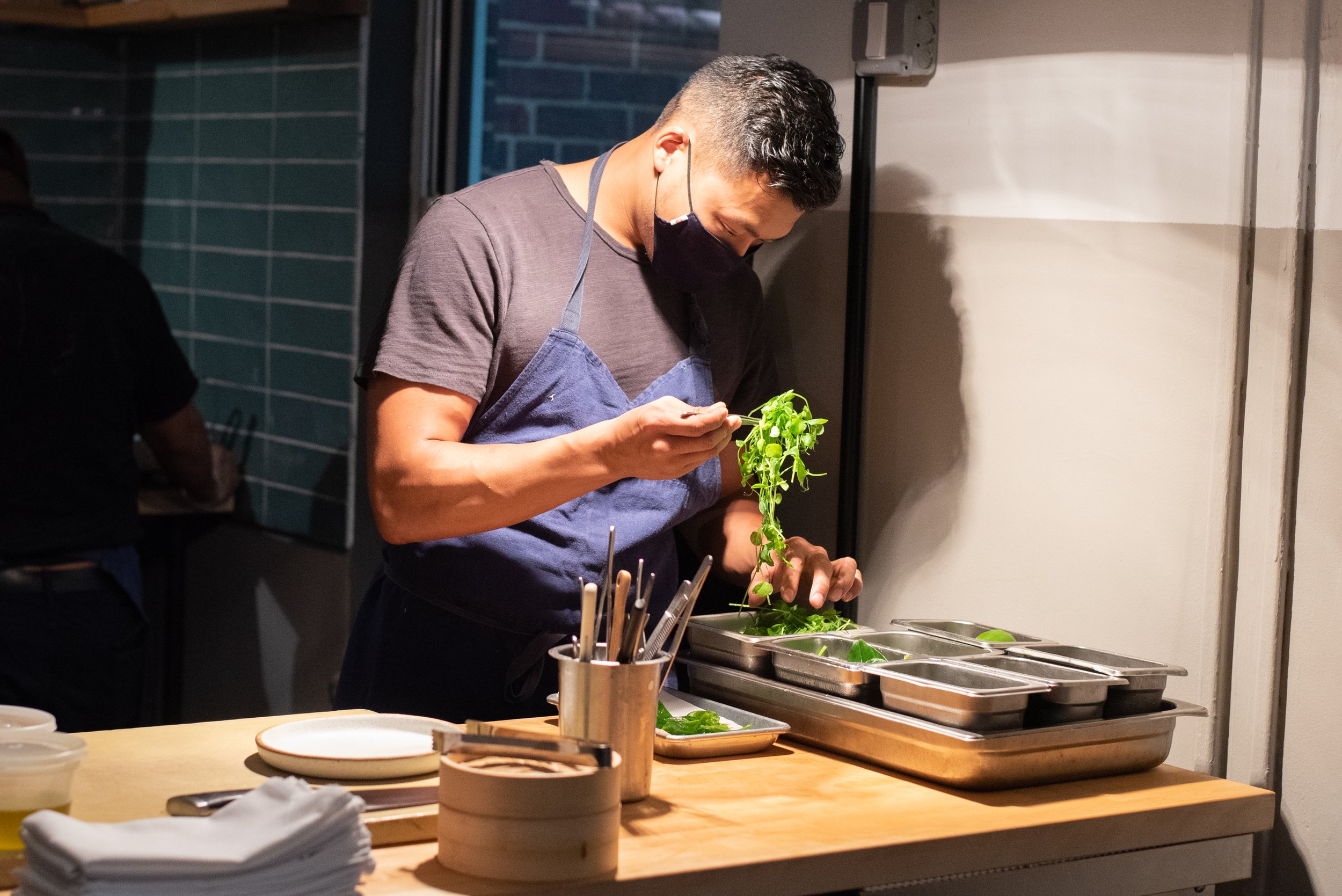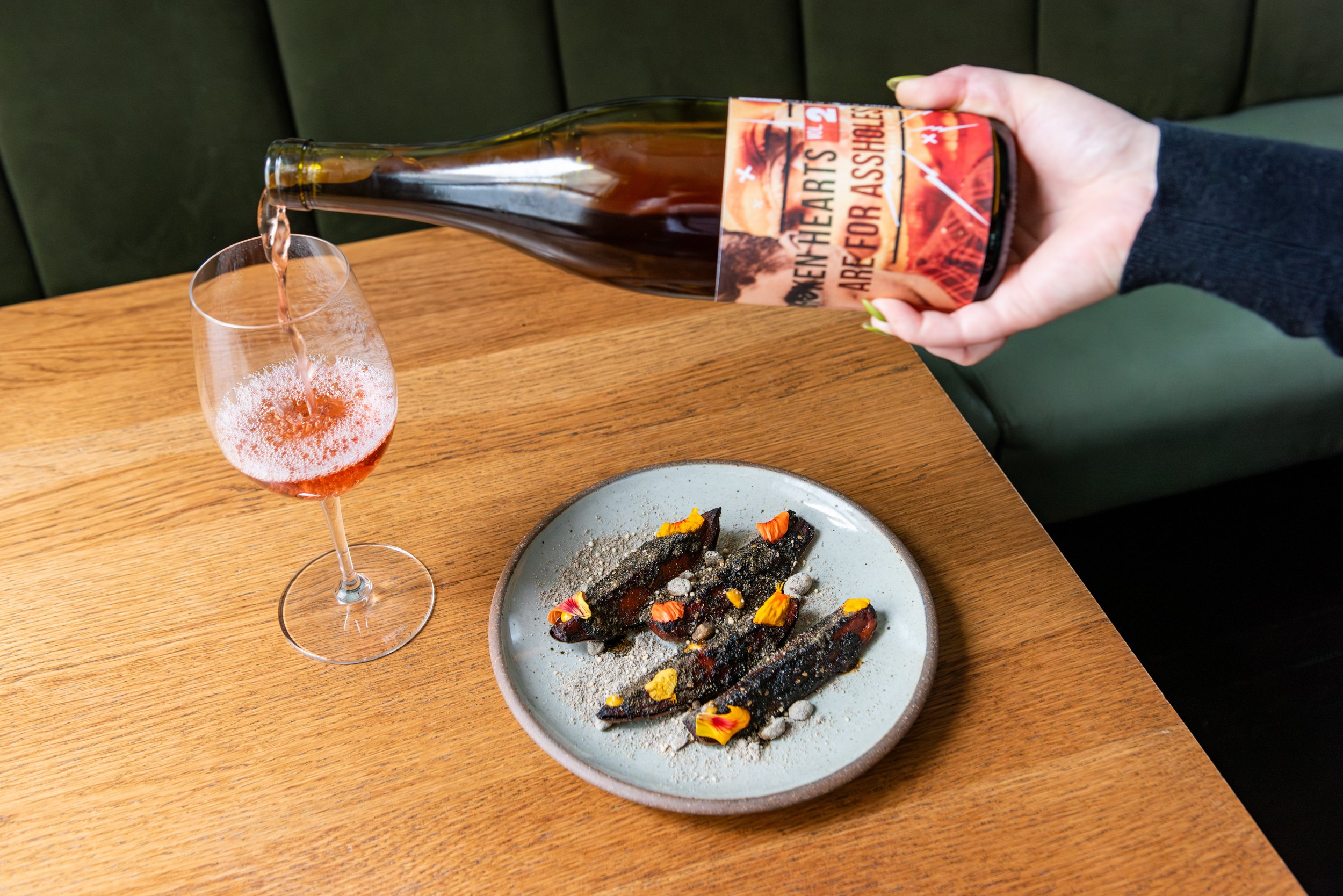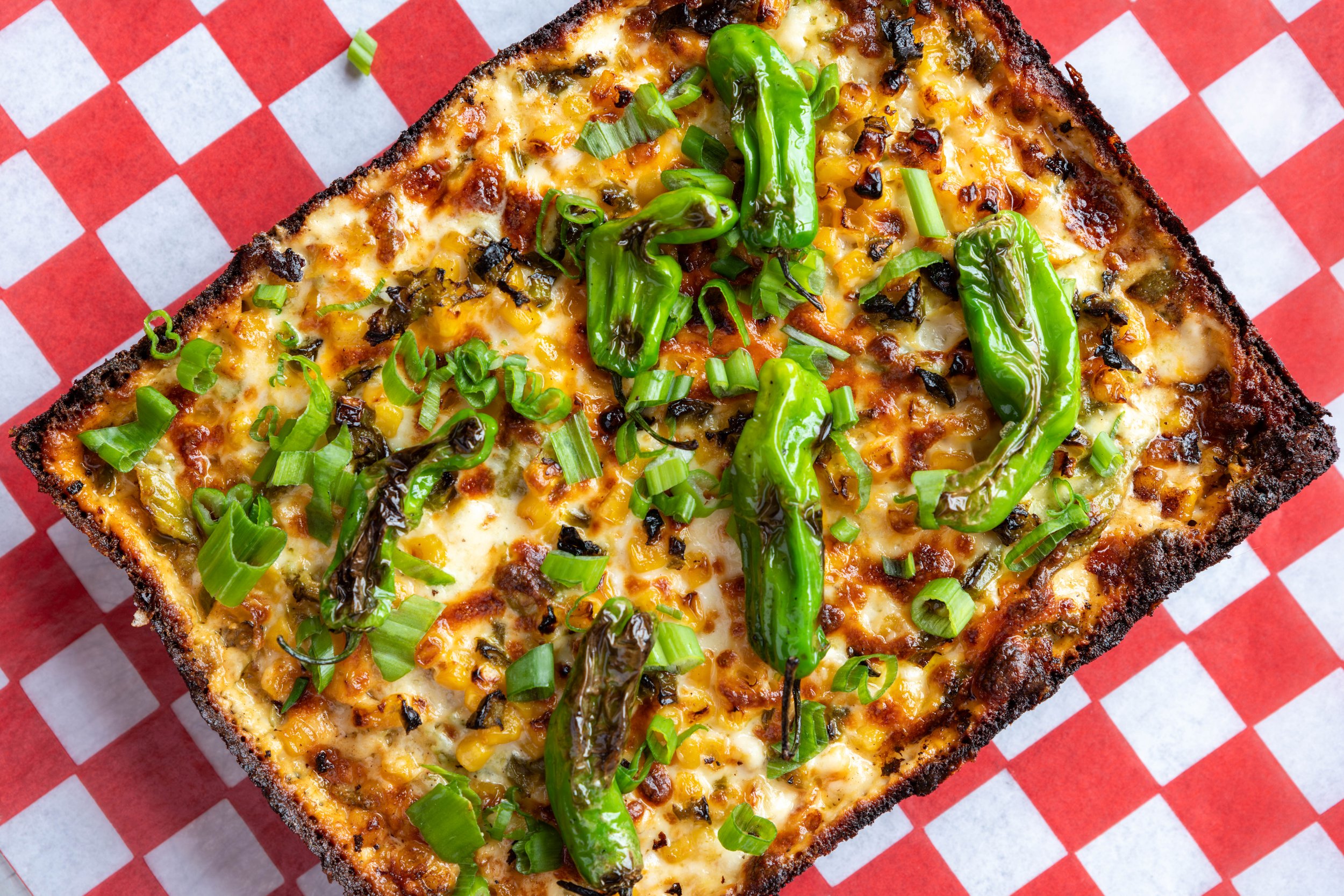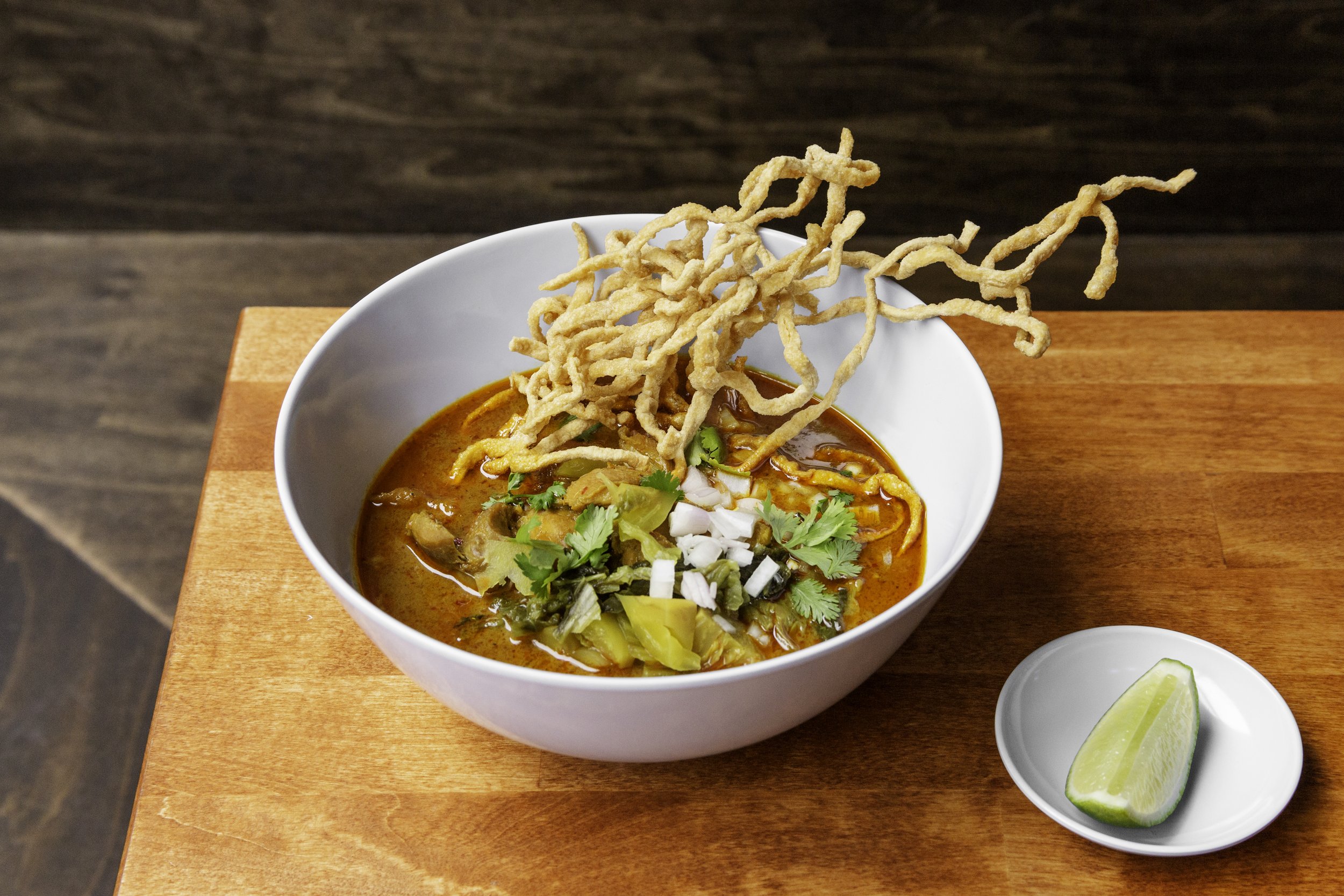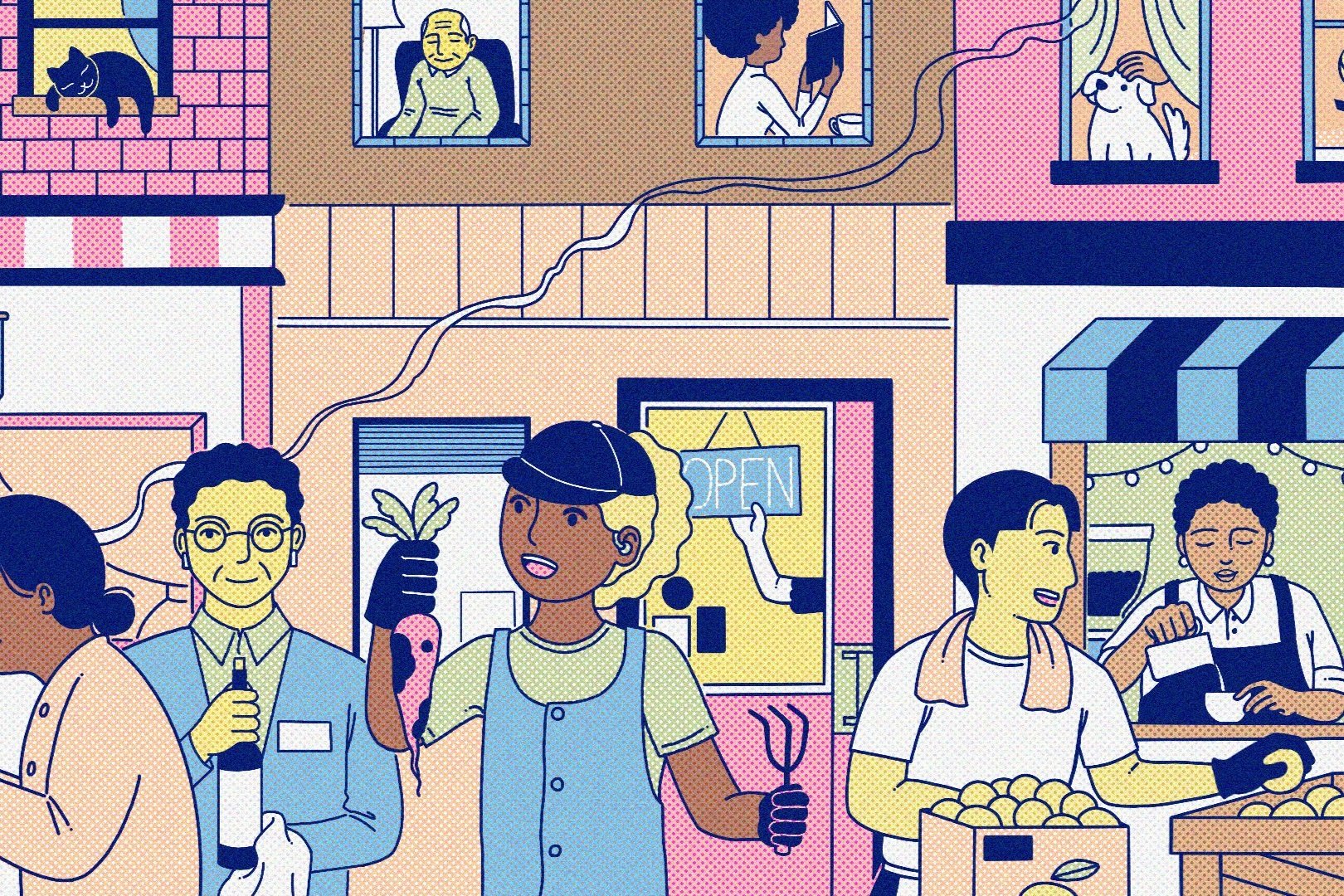The Dos and Don'ts of Opening a Community Food Hub
Winston Chiu of Rethink Food and Femi Rodney Frazer of Collective Fare give advice on how to start an emergency food program.
Chef Winston Chiu, Founder of Rethink Food and Bonbite Inc.
photos: jaclyn warren
As the industry buckles under the strain of the pandemic, inspirational stories about restaurateurs feeding their low-income neighborhoods have been heralded through the city.
Issues of finance and sustainability leave these programs in question. After all, approximately 1.4 million New Yorkers (including 339,000 children) rely on emergency food programs, according to the Food Back for New York City, and that’s before COVID-19 shriveled resources. We asked some experts to explain how they keep their programs running. Winston Chiu founded Rethink Food to serve more than 1.25 million fresh meals through its restaurant network, cafe and food truck. Femi Rodney Frazer is executive chef and co-founder of Collective Fare catering company, which has been distributing 2,000 meals per day during COVID-19 from the Brownsville Community Culinary Center. Frazer’s biggest piece of advice: “Find it in yourself. Make sure you’re committed. This is a long ride.”
Do: Reach out to the government.
When he had a surplus of food at the beginning of the pandemic, Chiu contacted elected leaders to ensure soup kitchens were surviving and still operating with donations. Frazer has been working with local politicians Eric Adams, Alicka Ampry-Samuel and Latrice Walker. If a restaurant is feeding people, it can adapt its financial model by applying for government grants.
Do: Work with nonprofits.
“Get involved with nonprofits that are committed to and aligned with your mission statement,” says Frazer, who points out that there are 704 nonprofits in Brownsville alone. Many of his nonprofit partners aren’t even related to food but financers, health care professionals, and housing advocates to attack the problem from all sides. Collective Fare has worked with Rethink, World Central Kitchen, North Brooklyn Angels, Men Elevating Leadership Inc, the James Heming Society, the Isabahlia Ladies of Elegance Foundation, and more. Frazer recommends doing research into the local nonprofit scene, going on site visits and, “Don’t exhaust resources, but try to keep fuel in the tank until the next thing comes up.”
Don’t: Throw out the scraps.
Rethink has built a cycle of sorts through its partners. Honey from Annie’s Ginger Elixir gets sent to Kings County Distillery to produce spirits, and extra whiskey goes to Mast Brothers chocolate to fill the sweets. Rethink has a compost program that serves Brooklyn Grange, where Chiu sources some of his ingredients. So communicate with your neighbors on what is available to be reused.
Do: Ingrain yourself in the community.
Frazer suggests that the first thing to do after opening a restaurant is to meet with community board members. Then, during hard times, people will remember that you once donated food or hired a loved one who needed a job. “It’s a good place to build the foundation,” Frazer says.
Don’t: Ignore the needs of your staff.
Restaurant staff are often the ones hit on the lower end of the K-shaped recovery, meaning as the rich get richer, bussers and dishwashers are having an even more difficult time. Remember that some of the people in need might work in your kitchen. Rethink put together grocery bags for employees, and Frazer is all about upward mobility. He doesn’t like for anyone to work under him for more than two years and encourages a flexible schedule for people to pursue their other jobs and passions. “To get the team to quickly pivot, you can only do something of that magnitude when you have built up a tremendous amount of trust,” says Yvette Leeper-Bueno, whose Vinatería restaurant in Harlem has been feeding 300-500 needy people per day. “A lot of the role you wear as a restaurateur is keeping that barometer on how people are feeling.”
Do: Cut out the middleman.
Zoning has forced Brownsville to be a mostly industrialized market and food desert. If your local grocery store doesn’t have much to donate, forge direct links with farmers, distributors or community growing programs.
Don’t: Forget the area’s culture.
Seniors are one of the most vulnerable populations during a disaster, and Chiu wanted to aid those living in Chinatown. He knew PB&Js weren’t going to cut it for elderly Chinese-Americans, so Rethink came in with rice-based dishes.
Don’t: Follow the status quo.
Chiu and Frazer both champion creativity to diversity restaurant portfolios. Rethink created an incubation lab out of its commissary kitchen to work with new businesses, and Collective Fare is trying a pilot program to accept SNAP benefits for healthy dishes at its restaurant. “The restaurant model is very antiquated,” Chiu says. “It’s the only industry that doesn’t make sense as an investor. We make excuses for it. But we do it because we love it.”

